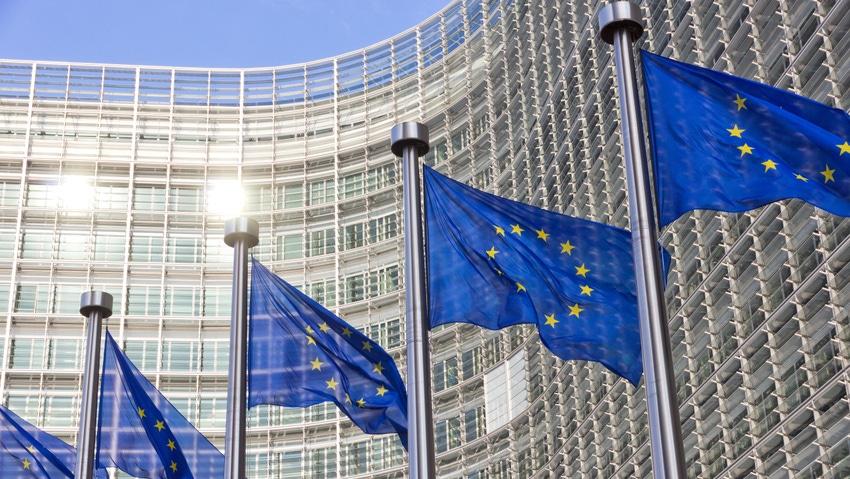A public reckoning for Big Telco 'fair share' demands
Does Europe really need to subsidize Big Telcos in order to reach its 2030 Digital Decade targets?

It's been a rollercoaster two years in the EU telecoms policy arena. We've finally arrived at a public reckoning where the "fair share" demands of Big Telcos have been publicly rejected, at least for now. However, we are at the very start of the Digital Networks Act (DNA). As Ministers meet next week to chart a future course, there's an urgent need to answer fundamental questions and change how Europe thinks about connectivity – for the better.
The DNA is pitched as an instrument to boost the telecoms sector. Many however, including competitive telecom operators and consumer groups, fear it is set to become a blunt instrument that allows the largest and most profitable telcos to consolidate further and extract extra money from consumers for the same service.
So, how do we ensure this DNA becomes a helpful instrument? The positive reality is that Europe's connectivity targets are well within reach. In order to get there, however, we first collectively need to acknowledge that delivering better connectivity does not equal subsidizing Big Telcos.
Next week, three key meetings take place. On December 4, the Commission hosts a roundtable with the financial sector to "explore telecom investments." That same day, the D9+ countries that lead Europe's digitalization will convene. And on the fifth, EU Ministers will discuss investments in digital networks and infrastructure at the Telecoms Council.
These are extremely timely opportunities to focus on the positive questions that actually matter. We should look ahead, not back to discarded ideas, and there are three key issues that stand out in particular.
Full 5G coverage
Full 5G coverage is one of the EU's main connectivity goals. But are consumers sufficiently taken into consideration? What is the added benefit, for the average European, to switch to 5G? As someone who uses and pays for close to one terabyte of data a month, I don't see any yet. Still, telcos are already pushing for EU money for 6G rollout.
That is why Ministers should be asking "How do we drive consumer demand for 5G?" rather than "How do we convince investors to put money into telcos' networks?" A toll road operator doesn't want to invest in empty lanes that no one will use. One needs to meet actual demand in order to grow and make a profit.
Gigabit-speed connectivity
Fiber networks are undoubtedly a means to this end for large parts of Europe. But isn't an approach that relies solely on expanding mobile networks and fiber short sighted? Open RAN technology, for example, allows for cloud-based networks on top of existing infrastructure. It's easier to maintain, as well as more cost effective. And while telcos in countries like France recently started backtracking on their promise of 100% fiber rollout, Ukraine has demonstrated that satellite connectivity can be a viable alternative in even the most remote regions and difficult circumstances.
So, shouldn't the actual helpful question then be, "Why don't we consider all possible options in our efforts to reach Europe's connectivity goals?" instead of the narrow-minded "How do we find more money to invest in one or two technologies?"
Better connectivity
The Internet is at its most efficient when networks connect freely and frequently. That is why settlement-free peering has become the industry norm. That is, except for some incumbent EU telecom operators, who don't want to swap traffic freely with other networks trying to reach their customers. Of course, this drives up costs for everyone and slows down the Internet, pointlessly. Europe should do better.
If the goal is to ensure better connectivity for all Europeans, Ministers should answer "How do we encourage all actors in the IP interconnection market to adopt settlement-free peering?" rather than "How to subsidize incumbent telcos with mandatory fees?"
I urge policymakers to take a step back next week. They need to rethink what reaching the 2030 connectivity targets actually means, and it's not giving former state monopolies a handout. Europe shouldn't be fooled by public complaints of a few telco CEOs who seem to be pining for the greater profits of years past, as long as someone else is paying.
Ministers can rise to the occasion and discuss forward-looking constructive approaches to empower the entire connectivity sector, rather than picking favorites, winners and losers. Similarly, the Commission's upcoming Digital Networks Act should lead the way on new technologies and ensure the protection of the open Internet.
About the Author(s)
You May Also Like












